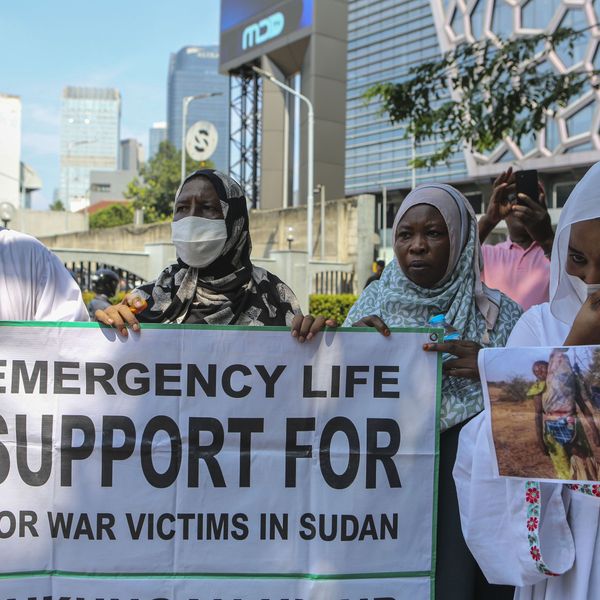Citing nearly unprecedent levels of conflict and instability across the world, the heads of both the United Nations and the International Red Cross on Saturday issued a rare joint call warning that nations and global leaders must dramatically step up efforts to scale back wars and miltary actions that are causing massive human suffering while ripping apart families, communities, entire nations, and regions.
"Rarely before have we witnessed so many people on the move, so much instability, so much suffering," said Peter Maurer, president of the International Committee of the Red Cross (ICRC). "In armed conflicts in Afghanistan, Iraq, Nigeria, South Sudan, Syria, Yemen, and elsewhere, combatants are defying humanity's most fundamental norms. Every day, we hear of civilians being killed and wounded in violation of the basic rules of international humanitarian law, and with total impunity. Instability is spreading. Suffering is growing. No country can remain untouched."
"Instability is spreading. Suffering is growing. No country can remain untouched." --Peter Maurer, ICRC President
Citing figures that are the highest they've been since the Second World War, the two agencies said that sixty million people around the world have now been displaced from their homes because of conflict and violence. What's more, they say, today's conflicts have become more protracted, meaning that many displaced people face years away from their homes, communities and livelihoods.
Both Mr. Maurer and UN Secretary-General Ban Ki-Moon stressed that the institutions they lead are in a unique position to bear witness to the consequences of these numerous conflicts around the world as they condemned the heads of nation states for doing far too little.
"In the face of blatant inhumanity, the world has responded with disturbing paralysis," said Ban. "This flouts the very raison d'etre of the United Nations. The world must reaffirm its humanity and uphold its commitments under international humanitarian law. Today we speak with one voice to urge all States to take immediate, concrete steps to ease the plight of civilians."
Offering at least a partial set of solutions to the global crisis of war and conflict, the UN and ICRC leaders called on leaders of world government's to the following urgent actions:
- Redouble efforts to find sustainable solutions to conflicts and take concrete steps to that effect.
- Individually and collectively, use every means to wield influence over parties to armed conflict to respect the law, including carrying out effective investigations into breaches of international humanitarian law, holding perpetrators accountable, and developing concrete mechanisms to improve compliance.
- Condemn those who commit serious violations of international humanitarian law, such as deliberate attacks on civilians and civilian infrastructure.
- Ensure unhindered access to medical and humanitarian missions and protect medical and humanitarian workers and facilities.
- Protect and assist internally displaced people and refugees while they are fleeing insecurity, and help them to find long-term solutions, while supporting host countries and communities.
- Stop the use of heavy explosive weapons in populated areas.


